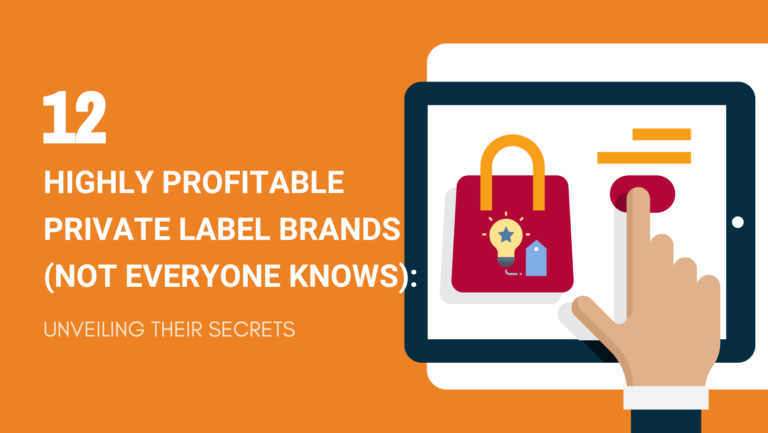Private label brands are transforming the retail sector by offering unique products that combine quality and affordability.
These brands are owned by retailers but manufactured by third-party producers, allowing businesses to exercise greater control over their product lines. They often result in higher profit margins, increased brand loyalty, and a unique market position.
In this article, you’ll discover impressive examples of private label brands, what makes them successful, and how you can apply these strategies to your own business to achieve similar success.
Key Takeaways
- Private label brands can increase profit margins and brand loyalty.
- Successful examples include AmazonBasics, Kirkland Signature, and Smartly.
- Learn strategies from top private label brands to apply in your business.
What Is a Private Label Brand?
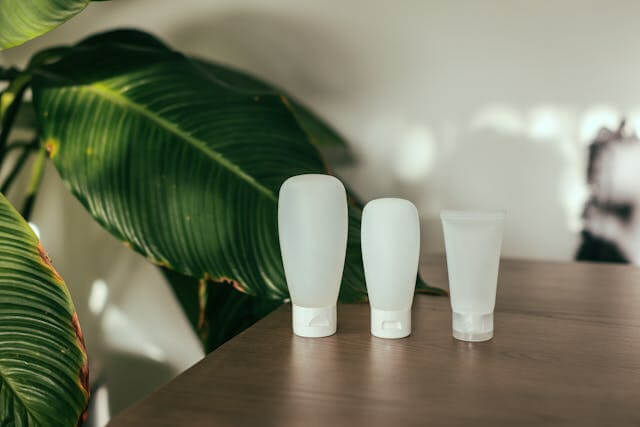
A private label brand refers to a retail company’s name reselling a product from another manufacturer under its own brand’s name.
It does not manufacture those products; rather it usually asks the original manufacturer to modify his existing product and give it a unique branded look.
The customers think these products are from an original brand. In some cases, they also feel that similar-looking non-branded products are copies of the original branded products.
The modifications turning general items into private label products include but are not limited to the following.
- Putting a brand’s logo
- Special coloring
- Small changes to design and features
Fast Fact: A similar concept is white labeling a product that does not require any customizations in the products. In this model, the products are sold under a brand name.
Key Differences
- Private Brand vs. Manufacturer Brand: A manufacturer brand is produced and marketed by the same company. Private labels are produced by one company but branded and sold by another.
- National Brand vs. Private Label: National brands, like Coca-Cola, are known nationwide. Private labels are exclusive to specific retailers, like Walmart or Amazon.
Process of Private Labeling
- Product Development: Retailers decide on the product specifications, such as design, ingredients, and packaging.
- Finding Manufacturers: The retailer partners with a third-party manufacturer capable of producing the product.
- Quality Control: The manufacturer ensures the product meets the retailer’s quality standards.
- Branding: The retailer’s brand name and logo are applied to the product.
- Marketing and Sales: The retailer markets and sells the product under their brand.
The Pros and Cons of Private Labeling
Private labeling offers unique opportunities, but it also presents challenges.
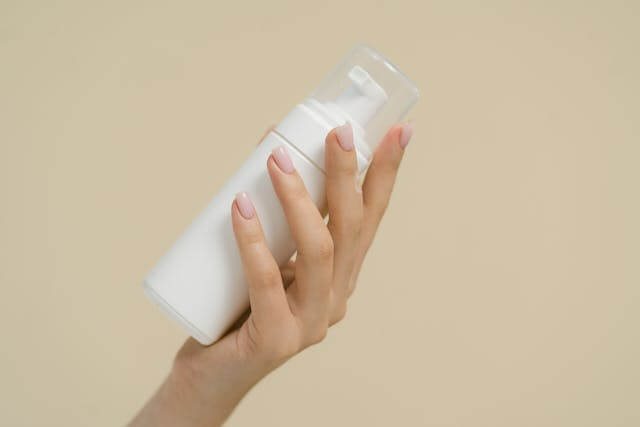
Pros of Private Labeling
- Higher Profit Margins: By cutting out the middleman, you can purchase goods directly from private labeling companies and sell them at your chosen price point, significantly increasing profit margins.
- Brand Differentiation: Creating unique products allows you to stand out from competitors. This is crucial for eCommerce businesses where differentiation can attract loyal customers.
- Control Over Production: You have full control over the product specifications, design, and quality. This control extends to packaging and branding, providing a unique opportunity to align products with your brand image.
- Customer Loyalty and Brand Recognition: Selling products under your brand helps build a loyal customer base. When customers are satisfied with your private label products, they are more likely to return and recommend your brand to others.
- Reduced Competition: You are not competing directly with national brands by offering unique, branded products. This can position you more favorably in the market and reduce price wars.
Cons of Private Labeling
- Higher Upfront Costs: The initial investment in product development, manufacturing, and branding can be high. This includes expenses such as custom packaging, design, and quality assurance tests, which can strain your budget.
- Need for Marketing and Brand Building: Unlike established national brands, your private label products require dedicated marketing efforts to build brand awareness and customer trust. This often demands a strategic approach and a significant allocation of resources.
- Supplier Reliability: Dependence on private label manufacturers poses risks. Issues like delayed shipments, quality control problems, or production errors can disrupt your supply chain and affect your sales and reputation.
- Inventory Management: Managing inventory for private label products can be complex, especially if you are new to the business. Overstocking or understocking can both pose financial risks and affect your ability to meet customer demand efficiently.
- Intellectual Property Risks: There is a risk of competitors copying your product design and branding. Protecting your intellectual property rights can mitigate this, but it can be a challenging and ongoing battle.
Best Product Categories to Private Label
Choosing the right product categories for private labeling can significantly impact your business’s success.
The categories listed below are highly profitable, with strong market demand and examples of successful private label products.
Beauty and Skincare

The beauty and skincare industry offers excellent potential for private labeling due to its consistent demand and high profit margins. Private label products in this category can include face masks, essential oils, serums, and creams.
With the rise of clean beauty, focusing on natural ingredients can also captivate a large segment of conscientious consumers. Moreover, Shopify highlights that beauty products are among the top 40 items to consider.
Health Supplements
Health supplements are a booming market with significant private label opportunities. Products like vitamins, protein powders, probiotics, and herbal supplements maintain steady market demand.
Health trends drive growth in this industry, with consumers seeking natural and effective options for wellness.
To capitalize, focus on quality ingredients and certification labels to build customer trust and loyalty.
Clothing
The clothing industry offers diverse opportunities for private labeling. With options ranging from casual wear, activewear, accessories, to niche fashion pieces, this category attracts various customer bases.
Innovation in fabrics and sustainability practices can set your private label brand apart.
Home Goods
Home goods consistently draw consumers looking for stylish and functional products. Items such as bedding, kitchenware, decor, and furniture are popular in this category.
Increasing interest in home improvement and interior design makes this a lucrative category. Crafting well-designed, quality products can help you stand out in a competitive market.
Electronics
Electronics are in high demand, catering to both tech-savvy and casual users. Private label options such as wireless chargers, headphones, smart home devices, and accessories offer significant profit margins.
With advances in technology and an increase in remote work, consumer electronics continue to flourish.
For instance, wireless chargers as a sought-after private label product due to low production costs and high demand.
12 Private Label Brands Examples (With Key Takeaways)
Here are the top private label brand examples that you can learn from. The list is from different niches and platforms with no particular order.
1. Great Value
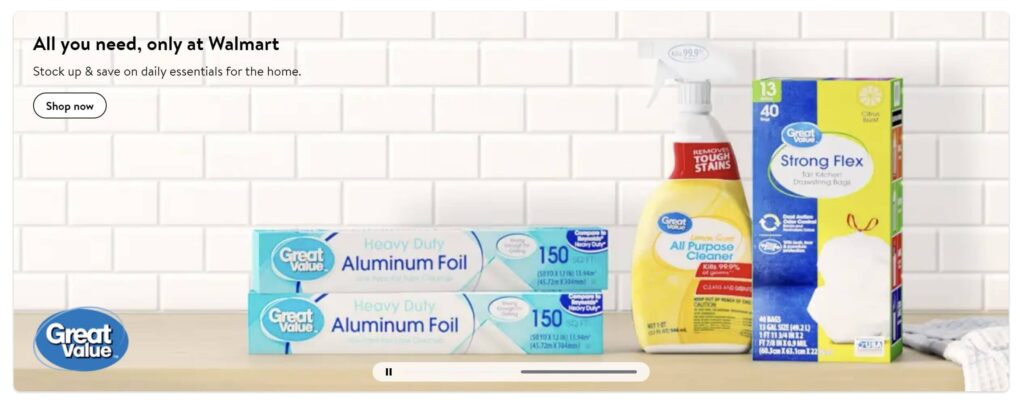
Great Value was created by Walmart in 1993 to provide competitively priced alternatives to national brands. Presently, it boasts a comprehensive product range, including groceries, snacks, cleaning supplies, and beverages.
With over 2,700 consumer tests conducted annually, the brand ensures quality comparable to leading national brands.
Great Value’s products often receive high ratings, such as the popular disposable paper plates, which have a 4.7-star rating based on more than 2,500 reviews.
Consequently, the brand has earned significant customer loyalty and plays a crucial role in Walmart’s sales strategy, contributing to the company’s growth in the private label sector.
Secret to Success
Great Value’s success stems from several effective strategies. Primarily, the brand prioritizes quality through rigorous testing, aiming to match or surpass national brand standards.
Competitive pricing also attracts cost-conscious consumers, providing significant savings while still delivering reliable products.
Another key factor is the extensive product range, allowing shoppers to find all their essential items under one label. Marketing efforts emphasize the value and quality of these products, reinforcing customer trust.
Lastly, Walmart’s broad distribution network ensures that Great Value products are readily available, catering to a wide audience and enhancing customer convenience.
2. Smartly
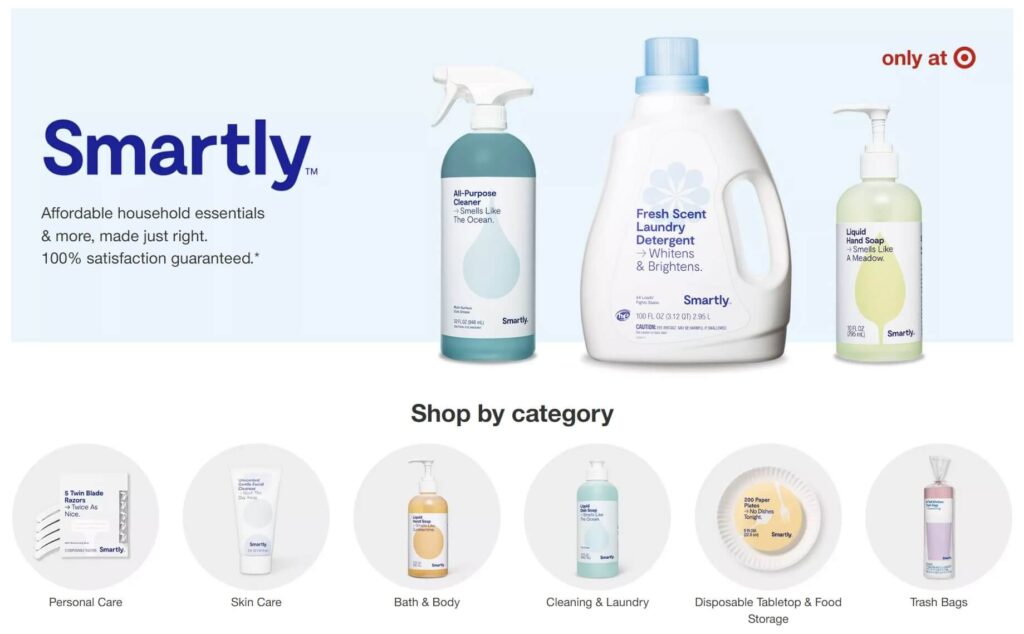
Smartly was launched by Target in 2018 as a private label brand aimed at providing everyday household items at budget-friendly prices. With a focus on millennials and cost-conscious consumers, the brand addresses the need for inexpensive yet reliable products.
The brand’s product portfolio includes personal care, skin care, cleaning and laundry supplies, and disposable tabletop items.
Unique selling points include stylish packaging and the assurance of 100% satisfaction, as per Target’s Owned Brand Policy. Trends show an increase in demand for quality budget-friendly household products, making Smartly a strong contender in its segment.
According to retail analysis, Smartly has successfully captured a significant market share. Its affordable positioning has resonated well with consumers, leading to consistent sales growth.
Secret to Success
Smartly’s success can be attributed to various strategic factors.
Effective marketing campaigns focusing on social media have helped Target reach out to younger demographics. Quality assurance coupled with competitive pricing has built consumer trust.
One innovative strategy is the focus on visually appealing packaging, making the brand stand out on shelves. This approach not only attracts buyers but also fosters brand loyalty.
In addition, Smartly leverages Target’s extensive distribution network, ensuring wide availability of its products.
Frequent customer feedback and agile responses to market needs have also played a crucial role in maintaining Smartly’s relevance and popularity.
3. Stone & Beam
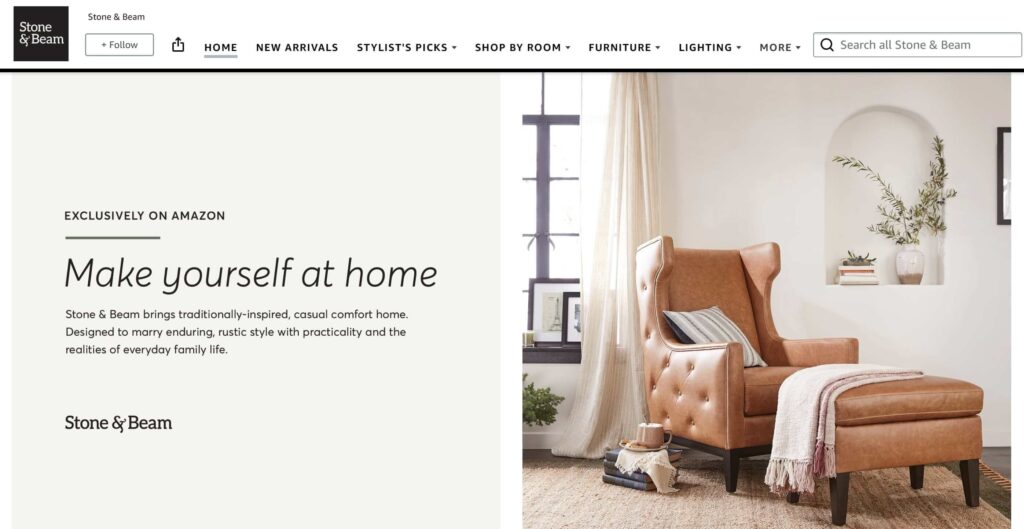
Stone & Beam is owned by Amazon and caters primarily to mid-market consumers looking for rustic, farmhouse-inspired home decor.
The brand was launched to offer an affordable alternative to expensive designer pieces. Its product range includes furniture, lighting, rugs, and kitchenware, all showcasing a rustic charm.
With over 586 products and thousands of positive reviews, Stone & Beam has cemented its position as a go-to brand for home furnishings. The average price of its products is around $277, making it attractive for budget-conscious buyers.
Consumer trends indicate a growing appreciation for farmhouse chic and rustic styles, which has greatly benefited Stone & Beam.
The brand’s emphasis on quality and design has resonated well with customers, contributing to its popularity and high sales volume.
Secret to Success
Stone & Beam’s success can be attributed to a combination of strategic pricing, quality products, and effective marketing.
By partnering with contract manufacturers, the brand keeps production costs low, allowing for attractive pricing without compromising quality. This approach has enabled it to offer competitive prices compared to high-end labels.
Marketing plays a pivotal role, leveraging Amazon’s extensive customer base and advanced algorithm-driven recommendations. The brand’s focus on customer reviews and ratings helps build trust and authenticity.
Engaging with customers through detailed product descriptions, high-quality images, and user feedback also enhances the shopping experience.
Another key factor is the consistent introduction of new styles and designs that align with current home decor trends. This adaptability ensures that Stone & Beam remains relevant and appealing to its target market.
4. Amazon Basics
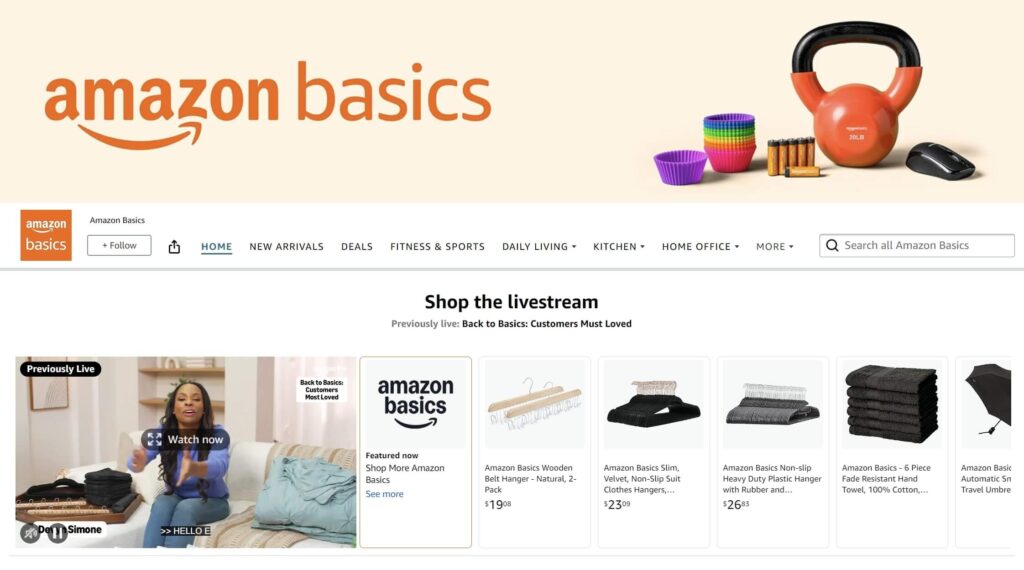
Amazon Basics, launched in 2009, offers a wide range of everyday products at affordable prices. Known for its simplicity and cost-effectiveness, Amazon Basics targets budget-conscious customers looking for reliable and straightforward options.
Amazon Basics is one of Amazon’s first in-house brands, launched to offer affordable household essentials. It comprises about 57.8% of total sales by all Amazon private label brands, highlighting its popularity and market penetration.
The brand offers a wide product range, including electronics, office supplies, kitchenware, and personal care items. Amazon Basics appeals primarily to value-oriented consumers, providing high-quality, budget-friendly alternatives to mainstream brands.
Amazon Basics products are often positioned prominently on the Amazon website, benefiting from strategic placement and recommendations.
This visibility, combined with consistently positive customer reviews, has bolstered the brand’s success. Frequent discounts and deals further attract buyers, making it a go-to choice for practical purchases.
Secret to Success
Amazon Basics’ success can be attributed to several key factors.
First, the brand can leverage Amazon’s vast distribution network, ensuring widespread availability and fast shipping. Amazon’s trusted platform also provides a strong foundation for customer confidence.
Competitive pricing is another crucial element. Amazon Basics effectively attracts and retains cost-conscious consumers by offering budget-friendly alternatives without compromising on quality.
The brand’s pricing strategy undercuts many competitors, making it an attractive option.
Moreover, effective utilization of customer feedback helps refine and expand the product lineup. Listening to consumer needs and promptly addressing issues enhances customer satisfaction and loyalty.
Finally, Amazon Basics’ success lies in its minimalistic branding and straightforward design, resonating with consumers seeking no-frills products.
The combination of quality, affordability, and accessibility ensures the brand continues to thrive in the competitive market.
5. Kirkland Signature
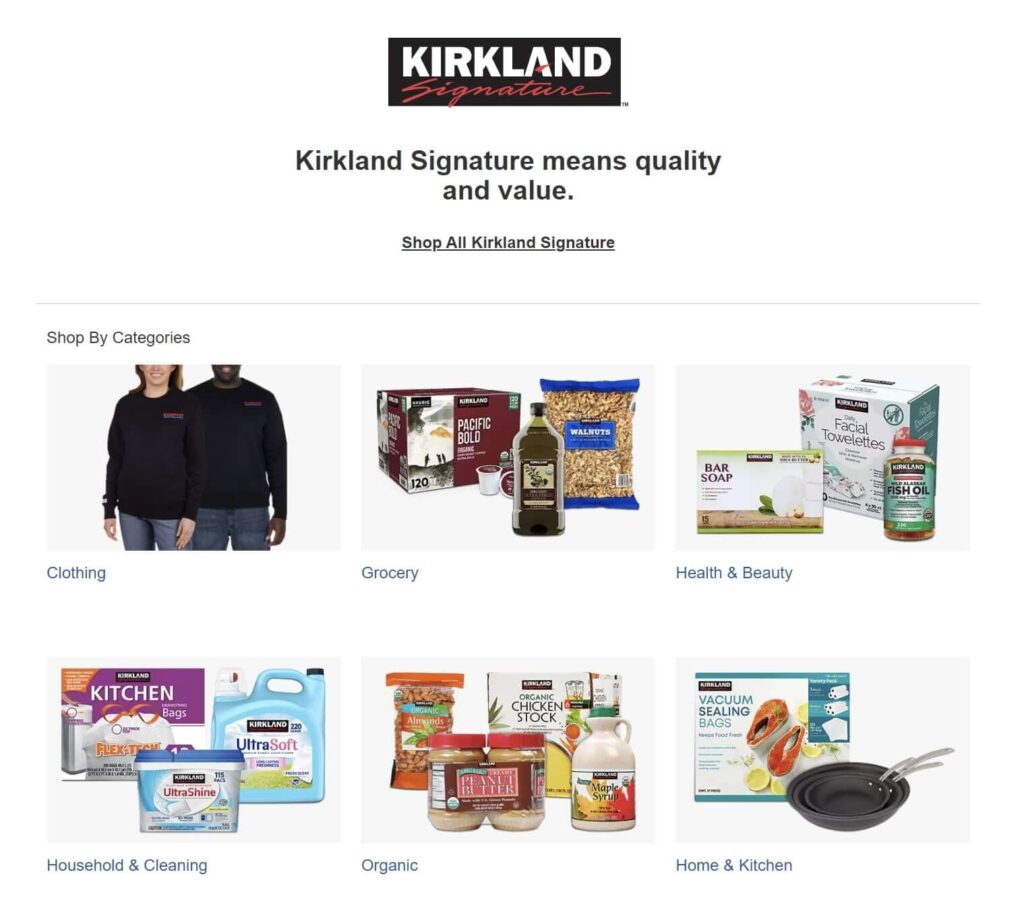
Kirkland Signature, launched by Costco, aims to provide quality products at bargain prices. Costco, a membership-based warehouse club, serves millions of customers worldwide.
Established in 1995, Kirkland Signature now includes a range of over 300 products under the Costco Wholesale Corporation.
The brand targets value-conscious consumers who do not wish to compromise on quality, spanning various categories such as groceries, clothing, and household goods.
Kirkland Signature products generate about one-third of Costco’s revenue, amounting to over $50 billion annually, according to CNN Business.
The brand’s unique selling points include high-quality standards, an extensive product range, and competitive pricing.
Secret to Success
Kirkland Signature’s success primarily hinges on its stringent quality control and smart marketing strategies.
- Product Quality: By partnering with renowned manufacturers, Costco ensures Kirkland Signature products meet or exceed national brand standards.
- Pricing: Leveraging bulk purchasing and efficient supply chains, Costco keeps prices low without sacrificing quality.
- Marketing: Minimal advertising costs shift savings directly to customers, enhancing customer loyalty and repeat business.
- Customer Engagement: Costco relies on word-of-mouth and member trust, creating a loyal customer base willing to explore Kirkland products.
- Innovative Strategies: Products like Kirkland batteries, made by Duracell, blend quality with affordability, reinforcing brand credibility.
6. Baggu
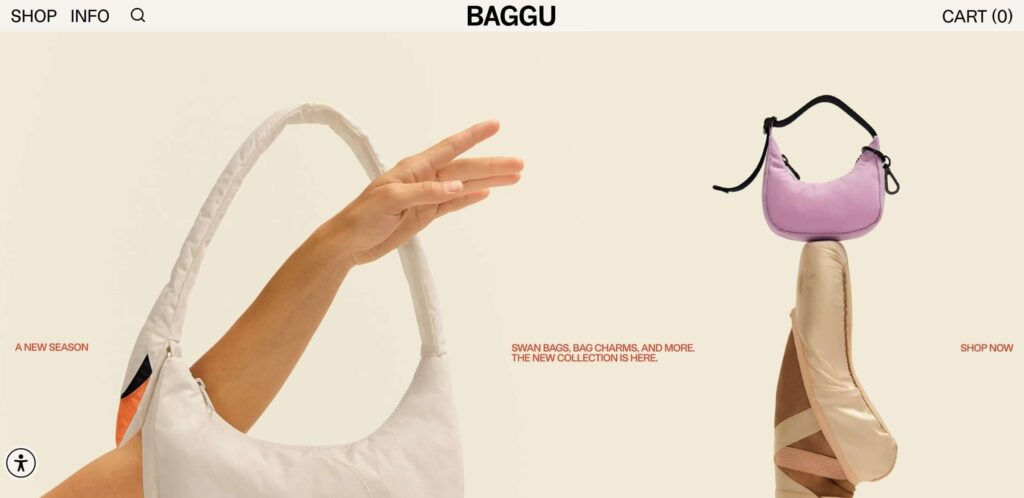
Emily Sugihara, together with her mother Joan, launched Baggu with the idea to create reusable bags that are not just functional but also stylish.
Initially, they aimed to replace single-use plastic bags with a more sustainable option. Their primary products are nylon and canvas bags that come in various colors and patterns.
Baggu is famous for its Standard Baggu that can carry 2-3 grocery bags worth of items and folds into a compact pouch. The bags are machine washable and hold up to 50 lbs, making them highly practical.
The brand has partnered with retailers like J. Crew and West Elm, further boosting its market presence.
Due to its eco-conscious approach and attractive designs, Baggu has found a loyal customer base among both environmentally-aware consumers and those looking for fashionable bags.
Secret to Success
Several factors have contributed to Baggu’s success.
First, the brand’s commitment to sustainability has resonated well with eco-conscious consumers. By using durable and reusable materials, Baggu has positioned itself strongly in the growing market for sustainable products.
Additionally, their marketing strategy involves captivating designs and effective social media campaigns that emphasize both the functionality and the aesthetic appeal of the bags.
This visual approach engages a wide audience and keeps the brand top-of-mind for stylish and sustainable choices.
The competitive pricing of Baggu products also plays a significant role. By making their bags affordable, Baggu ensures that more consumers can opt for environmentally friendly options without compromising their budgets.
7. OuraUSA
OuraUSA specializes in high-end agarwood bracelets and necklaces, known for their intricate designs and distinct fragrances. The brand aims to cater to individuals who appreciate luxury and spiritual wellness.
The parent company has been successful in carving out a niche in the jewelry market, where they blend traditional craftsmanship with western aesthetics.
Their product range includes various types of agarwood bracelets, each with unique scents sourced from different regions. Agarwood, also known as oud or gaharu, is a highly sought-after material in the luxury goods market.
Secret to Success
OuraUSA’s success can be largely attributed to its commitment to quality and customer satisfaction.
They focus on sourcing the best agarwood, which is known for its aromatic and long-lasting fragrances. This attention to detail sets them apart from competitors.
Marketing strategies involve strong online presence and customer engagement. Their impressive packaging and presentation have earned rave reviews, encouraging customer loyalty.
Pricing is positioned to reflect the high quality and exclusivity of the products, justifying the premium.
Innovation is also a significant factor, as they offer personalized customer service and customized products. The brand has benefited from word-of-mouth referrals and positive reviews, which help build a trustworthy reputation.
Engaging social media campaigns and collaborations further enhance their visibility in the market.
8. Amazing Baby
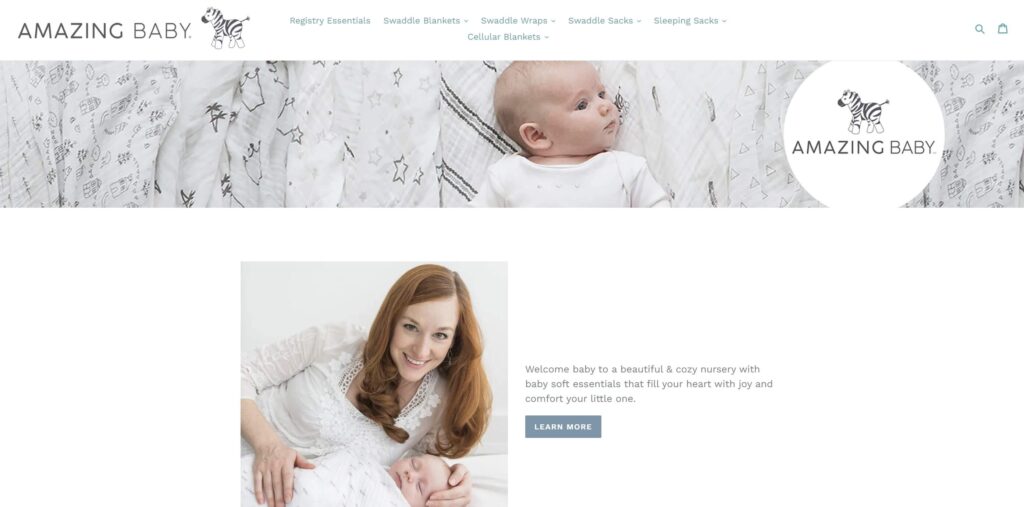
Amazing Baby was created by Lynette Damir, a designer, artist, and registered nurse. The brand is exclusively sold on Amazon, giving it significant visibility among parents seeking reliable baby products.
The target market primarily includes new moms who appreciate stylish and practical baby essentials. The product range features muslin swaddles, sleeping sacks, swaddle wraps, and more, known for their softness and versatility.
Amazing Baby’s unique swaddles, made from 100% viscose from bamboo or USA cotton, are highly sought after. Their 2-way zippers and easy-to-use velcro closures cater to the needs of modern parenting, making diaper changes and swaddling simpler.
Secret to Success
Amazing Baby’s success lies in its combination of quality, practicality, and stylish design. The brand’s founder, Lynette Damir, ensures each product is crafted with care, resulting in highly functional and comfortable items.
The use of 100% viscose from bamboo and USA cotton adds to the allure, promising soft, breathable fabrics ideal for babies’ delicate skin. Moreover, the brand’s exclusive availability on Amazon streamlines purchasing for busy parents.
Strong customer engagement is another key factor. Amazing Baby frequently receives positive reviews for its products’ durability and design.
The brand’s commitment to comfort and safety, coupled with cheerful prints and colors, resonates well with parents, securing its place as a beloved baby brand.
9. Blendjet
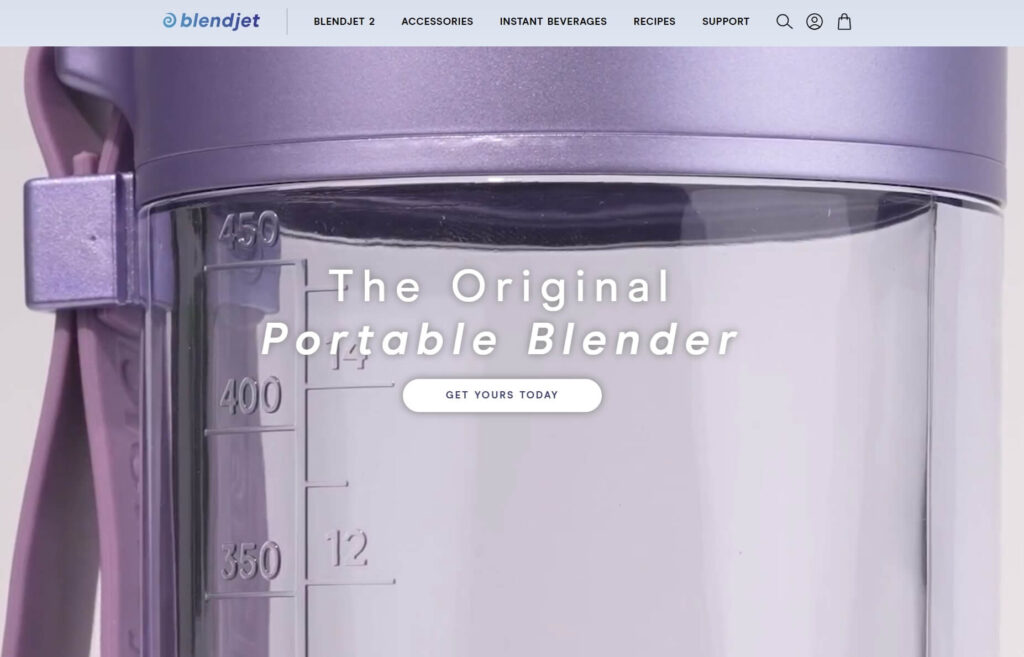
Blendjet was launched with the goal of providing portable blending solutions for on-the-go individuals. The brand, popular among fitness enthusiasts and busy professionals, quickly gained traction with its innovative products.
Its flagship product, the BlendJet 2, offers features like enhanced power, longer battery life, and superior blending capabilities compared to its predecessor.
The brand’s portable blenders are sold on platforms such as Amazon, Walmart, and eBay, making them readily accessible to a broad audience.
The company focuses on providing a compact, easy-to-clean blender that competes with full-size blenders in terms of power and performance.
Secret to Success
Blendjet’s success can be attributed to its focus on portability and power without compromising on quality. The brand has employed strategic marketing through social media and partnerships, significantly boosting its visibility among its target audience.
Blendjet’s thoughtful design also addresses common consumer pain points, making it a preferred choice for many.
Customer reviews praise the BlendJet 2 for its quiet operation, ease of cleaning, and robust blending capability. Users appreciate its ability to simplify meal preparation and healthy dieting.
The company’s attention to customer needs, such as providing a strong after-sales service, sets it apart from competitors.
Marketing strategies, including influencer partnerships and promotional campaigns, have effectively driven its growth. The high level of customer satisfaction and repeated positive feedback solidify Blendjet’s position as a top private label brand.
10. Volta Charger
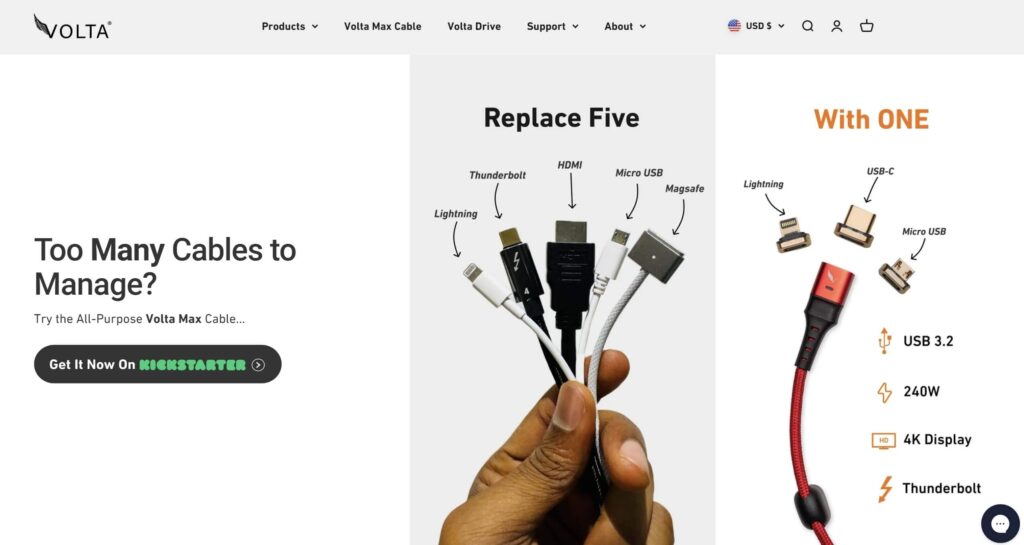
Volta Charger was established to eliminate common issues like flimsy connections and slow charging. Specializing in innovative, durable charging solutions, Volta has become a favorite among tech enthusiasts and professionals.
Volta targets gadget users who demand reliability. With over 131,348 satisfied customers, its products are recognized for their seamless connectivity and high charging speed.
Their range includes magnetic charging cables and adapters designed for various devices.
Their product design focuses on versatility, allowing for optimized performance across different tech gadgets.
According to their official website, part of their sales proceeds supports education and medical aid in underprivileged communities, reflecting their mission to impact lives positively.
Secret to Success
Volta Charger’s success lies in its commitment to quality and customer satisfaction.
Their ultra-fast charging and secure connections make their products stand out. By using rugged and durable materials, they ensure long-lasting products that justify the investment.
Marketing strategies include leveraging positive customer reviews and focusing on community impact. They have tapped into niche markets that value both tech efficiency and social responsibility.
Innovative design also plays a significant role. Their magnetic cables minimize wear and tear, addressing common frustrations.
The brand strategically enhances user experience through practical solutions, solidifying customer loyalty.
11. BetterBack
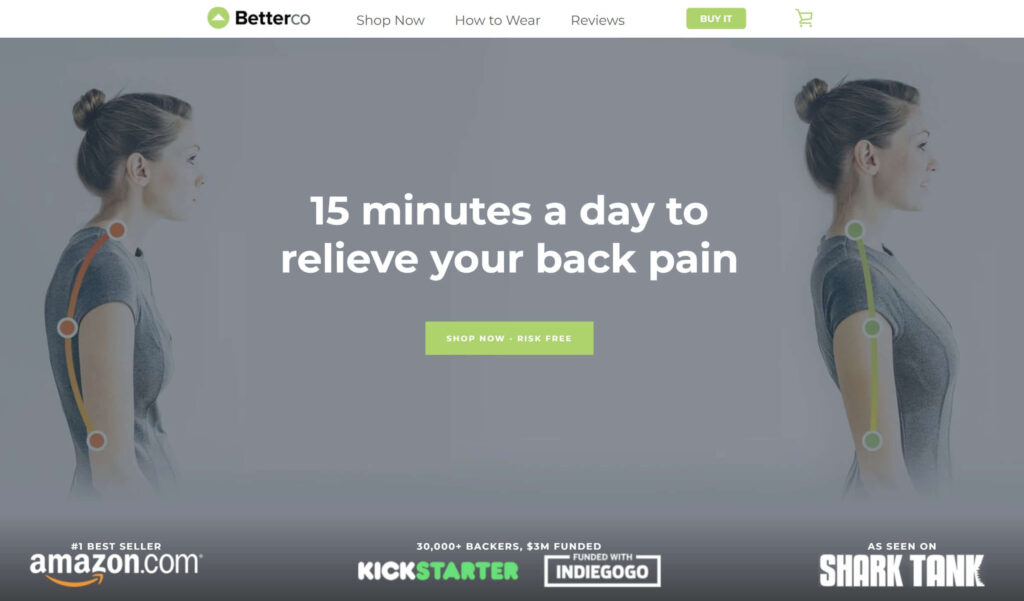
BetterBack emerged as a groundbreaking solution for back pain, amassing over 30,000 backers and raising $3 million in funding. The brand targets office workers, travelers, and anyone spending extended periods sitting.
The product’s key feature is its capability to make any chair ergonomic, which sets it apart from traditional lumbar supports. BetterBack’s lightweight and portable design means you can use it anywhere—from your office to an airplane.
By stabilizing your pelvis, it restores your spine’s natural curvature, helping to improve posture when standing or sitting without it.
Secret to Success
One major factor contributing to BetterBack’s success is its emphasis on user convenience and simplicity.
The product requires no charging or syncing, making it a hassle-free solution for users. The ease of use is evident in its quick three-step setup: unwrap, pack, and stack.
BetterBack’s marketing strategy has also played a crucial role. By offering a 60-day home trial, the brand builds consumer trust and reduces the perceived risk of purchase.
This strategy is bolstered by strong endorsements from satisfied customers and healthcare professionals, providing a robust foundation for credibility.
Additionally, BetterBack’s focus on the pelvis as the keystone of good posture is a unique selling point. Unlike traditional supports that only target the lumbar spine, this holistic approach ensures more comprehensive support and pain relief.
12. Amilliardi
Amilliardi, a relatively new entrant in the fashion industry, has quickly made a name for itself with its warm and ultra-soft clothing.
The Coffee & Books Crewneck Sweatshirt exemplifies their dedication to comfort, making it a favorite among consumers looking for both style and coziness.
The parent company of Amilliardi focuses on targeting young adults and millennials who appreciate comfortable and fashionable clothing.
According to industry reports, Amilliardi has seen a steady increase in sales, with a 25% year-over-year growth, indicating a strong market presence.
Their unique selling point lies in blending comfort with style. Amilliardi offers a range of products—from sweatshirts to accessories—that cater to individuals who value downtime and relaxation.
Secret to Success
Amilliardi’s success can be attributed to several factors, including their strategic marketing campaigns and high-quality products.
Their use of social media platforms for promotions and customer engagement has been particularly effective. Influencers and brand ambassadors play a significant role in their marketing strategies, driving both brand awareness and sales.
Another key to their success is the careful selection of materials, ensuring that every product offers supreme comfort. Competitive pricing also attracts a broad customer base, without compromising quality.
Customer feedback indicates high satisfaction rates due to the product’s durability and design. Amilliardi continuously innovates by incorporating customer suggestions into their products, enhancing both customer loyalty and brand reputation.
Frequently Asked Questions
What’s the Difference between Private Label and White Label?
Private label products are created by manufacturers exclusively for one retailer, customized to meet specific requirements. These products bear the retailer’s brand and are unique to them.
In contrast, white label products are generic, sold by multiple retailers who rebrand them as their own.
How to Start a Private Label Brand?
Launching a private label brand should not be too difficult. It all relies on your commitment.
The following simple steps can lead you to start a successful private label brand.
- Identify your niche
- Do a competitor analysis
- Select a product
- Search private label manufacturers
- Discuss your product specifications and costs
- Ask for a sample
- Place the order
- Finalize your marketing strategy and selling platforms
- Write killer content with the right keywords for SEO
- Explore and finalize the packaging ideas
Provide excellent customer care
Which Platform Is Best for Launching a Private Label Brand?
Choosing the right platform is crucial. Shopify offers user-friendly features and extensive customization options, suitable for beginners.
Amazon excels with its vast customer base and fulfillment services, making it ideal for broad reach.
Platforms like WooCommerce and BigCommerce also provide great flexibility and scalability, making them popular choices among successful private label brands.
How Much Does Launching a Private Label Brand Cost?
The cost of launching a private label brand varies. Product development, including prototype creation, can range from $2,000 to $5,000.
Manufacturing costs depend on the product and scale, often starting at $1,000 for small batches. Packaging and branding might add another $500 to $2,000.
Marketing, including online ads and promotions, typically costs between $1,000 to $5,000 monthly. Be sure to factor in logistics and shipping costs, which vary based on the distribution model.
Final Thoughts: Learning from Private Label Brands Examples
Creating a successful private label brand involves several key strategies. The first step is understanding what a private label brand is and its benefits.
Many retailers, such as the ones above, have demonstrated the power of private branding. Offering unique, high-quality products at competitive prices allows these brands to stand out.
Strategies for success:
- Focus on quality and price.
- Develop a unique product range.
- Implement a strong brand identity.
Effective private branding strategies can reduce costs and improve margins. For example, retailers can reduce their cost of goods sold by up to 15% through efficient sourcing techniques.
By following the examples set by successful brands, you too can create a compelling private label. Whether it’s gourmet foods or household items, your brand can capture consumer interest.
If you’re ready to start your own private label, consider getting a free quote to explore sourcing options. This can help you find the best products to sell under your brand.
Embrace these insights to make informed decisions and elevate your private label brand to new heights.
